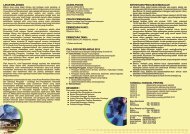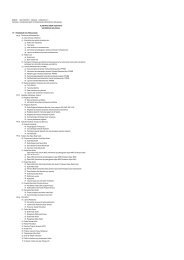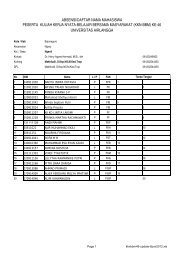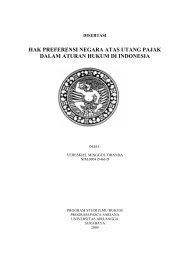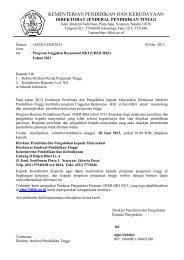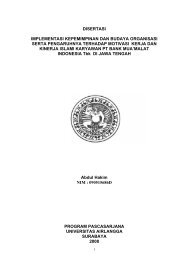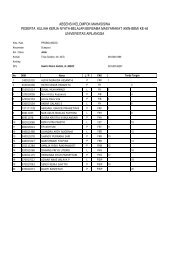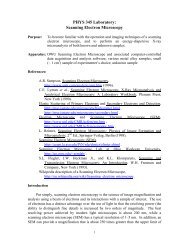Nietzsche's Naturalistic Ethics - UNAIR | E-Book Collection
Nietzsche's Naturalistic Ethics - UNAIR | E-Book Collection
Nietzsche's Naturalistic Ethics - UNAIR | E-Book Collection
Create successful ePaper yourself
Turn your PDF publications into a flip-book with our unique Google optimized e-Paper software.
at terminating what he deplores as “the juxtaposition of ‘man and world’”, that is, an attitude “ofman as a ‘world-negating’ principle, of man as the measure of the value of things, as judge of theworld who in the end places existence itself upon his scales and finds it wanting” (GS 346). ThusNietzsche’s ideal of unity is subtle: On the one hand, the unified agent rests in himself and is selfcontainedin ways in which the person of guilt and ressentiment is not. On the other hand, the personwho turned out well also conceives of herself as embedded into a causal web comprising the wholeuniverse (cf. TI, Errors, 8). Characteristically for Nietzsche’s ideal, this second feature operates insupport of the first: the person who turned out well, der Wohlgeratene, can safely rest in himselfbecause he is conscious of being part of a causal web that allows for no feelings of guilt and blame.5. Conclusion: Higher Men and Nietzsche’s <strong>Naturalistic</strong> <strong>Ethics</strong>Any attempt to develop Nietzsche’s ideal of agency in more depth would involves us in more detailthan we can accommodate in Nietzsche’s discussion of the “higher men,” the characters he hopes willovercome ressentiment-based moralities. But, by way of concluding, it is now time to resume thefirst question we asked about Nietzsche’s account of ressentiment in section 3, namely, the questionof precisely on what grounds Nietzsche criticizes ressentiment-based morals. We saw at the end ofsection 3 that it is not open to Nietzsche to introduce a criterion of acceptability of moral codes thatdeems acceptable those that are “natural” in some sense while rejecting the others. Yet that left uswith the question of what this criterion of acceptability is that is needed to complete Nietzsche’s case.Section 4 suggested an answer, namely, that ressentiment-based morals are rejected because theyprevent the emergence of a culture dominated by people who turned out well. Indeed, Nietzsche isconcerned that ressentiment based moralities force the world to remain a madhouse, that is hasbecome too strong for the few to whom his ideal of agency is open to flourish. The point is expressed34




